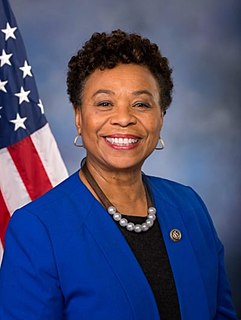A Quote by Daniel Webster
No power but Congress can declare war, but what is the value of this constitutional provision, if the President of his own authority may make such military movements as must bring on war?
Related Quotes
No power but Congress can declare war; but what is the value of this constitutional provision, if the President of his own authority may make such military movements as must bring on war? ... [T]hese remarks originate purely in a desire to maintain the powers of government as they are established by the Constitution between the different departments, and hope that, whether we have conquests or no conquests, war or no war, peace or no peace, we shall yet preserve, in its integrity and strength, the Constitution of the United States.
With 450,000 U. S. troops now in Vietnam, it is time that Congress decided whether or not to declare a state of war exists with North Vietnam. Previous congressional resolutions of support provide only limited authority. Although Congress may decide that the previously approved resolution on Vietnam given President Johnson is sufficient, the issue of a declaration of war should at least be put before the Congress for decision.
I believe that the power to declare war is most important in limiting the powers of the national government in regard to the rights of its citizens, but that it does not require Congress to give its approval before the president uses force abroad. I do not believe that the framers of the Constitution understood the power to declare to mean "authorize" or "commence" war. That does not mean that the separation of powers or checks and balances will not work.
The president does not have power under the Constitution to unilaterally authorize a military attack in a situation that does not involve stopping an actual or imminent threat to the nation. As commander in chief, the president does have a duty to protect and defend the United States. In instances of self-defense, the president would be within his constitutional authority to act before advising Congress or seeking its consent.
Are there any military actions that the president of the United States may not order on his own authority? If so, what are they? Bit by bit, decade by decade, Congress has abdicated its assigned role in authorizing war. Today, it merely rubberstamps what presidents decide to do (or simply stays mum). Who does this deference to an imperial presidency benefit? Have U.S. policies thereby become more prudent, enlightened, and successful?
Under Article II, all executive power is vested in one president of the United States. The regulatory state is Congress's efforts to undermine the president's authority. And my hope is we will see a president use that constitutional authority to rein in the uncontrollable, unelected bureaucrats and to rescind regulations.
Particularly when the war power is invoked to do things to the liberties of people, or to their property or economy that only indirectly affect conduct of the war and do not relate to the engagement of the war itself, the constitutional basis should be scrutinized with care. ... I would not be willing to hold that war powers may be indefinitely prolonged merely by keeping legally alive a state of war that had in fact ended. I cannot accept the argument that war powers last as long as the effects and consequences of war for if so they are permanent -- as permanent as the war debts.
Congress has created and funded a huge peacetime military that has substantial abilities to wage offensive operations, and it has not placed restrictions on the use of that military or the funds to support it, because it would rather let the president take the political risks in deciding on war. If Congress wanted to play a role in restricting war, it could - it simply does not want to. But we should not mistake a failure of political will for a violation of the Constitution.









































